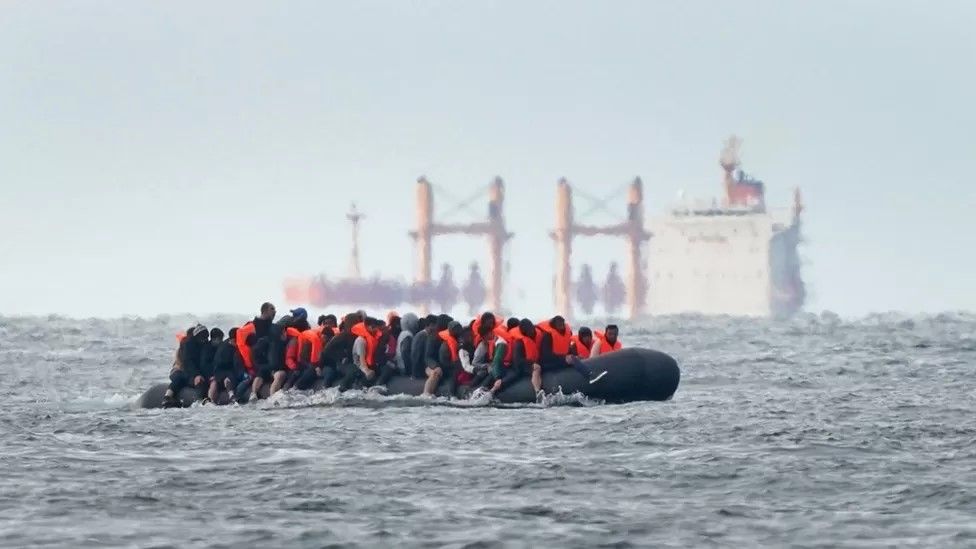ARTICLE AD BOX
 Image source, PA Media
Image source, PA Media
By Sam Francis
Political reporter, BBC News
A group of Conservative MPs, led by former immigration minister Robert Jenrick, will try to force changes to the government's flagship Rwanda Bill.
The bill seeks to revive the government's plan to send some asylum seekers to the east African country.
The group, believed to number about 40 MPs, say the changes will "strengthen" the law and stop people smuggling into the UK via small boats.
Mr Jenrick said "the Bill as drafted simply will not work".
He is backed by former prime minister Liz Truss, former home secretary Suella Braverman, former party leader Iain Duncan Smith and former cabinet minister Jacob Rees-Mogg.
The amendments are expected to be tabled early next week
At least nine former Cabinet ministers are thought to be supporting four amendments.
Those backing the amendments want to significantly reduce the circumstances in which a migrant can make an individual claim to challenge the validity of being sent to Rwanda.
They also want to make it the default position that ministers would ignore injunctions from the European Court of Human Rights (ECHR) blocking flights.
The amendments are extremely unlikely to attract enough support in the Commons to pass.
The key question is how many of those who support them would be willing to vote against the government's plans if they remain unamended.
Ministers will also have to decide if they themselves adopt some of the ideas being put forward to try to attract greater support from some of their MPs on the right of the Conservative Party.
But some on the left, in the One Nation Group of Tory MPs, are insistent the government must not change the bill.
Would-be rebels backed off voting against the Bill on its second reading before Christmas. More than 20 Tories abstained but threatened to vote against it if there were no changes.
A group of 29 MPs would be big enough to overturn Mr Sunak's 56-seat majority, if they were to vote with Labour.
But that is thought to be unlikely to happen until the crunch vote in the final stages of the Bill, when it will be clear if the Government has granted any concessions.
Meanwhile, a move by Labour trying to force ministers to publish documents relating to its Rwanda policy has been defeated by 304 votes to 228.
The unamended Rwanda bill seeks to declare in UK law that Rwanda is a safe country to send asylum seekers to, after the Supreme Court ruled the policy was unlawful in November.
The legislation orders British judges and courts to ignore some sections of the UK Human Rights Act.
Asylum seekers would still be able to challenge their removal to Rwanda based on their personal circumstances.
But ministers could ignore emergency orders from the ECHR to suspend a flight to Rwanda while an individual legal case was being heard.
It stops short of providing powers to dismiss the whole of the ECHR.
'Fix' the bill
Mr Jenrick, who resigned as a minister over the government's approach to the Rwanda scheme, said: "The stakes for the country could not be higher.
"If we don't fix this bill the country will be consigned to more illegal crossings, more farcical migrant hotels and billions more of wasted taxpayers' money in the years to come.
"If the government truly want to stop the boats, it should adopt these amendments and use parliament's power to deliver on the repeated promises we have made the public."
The amendments are designed to close off legal challenges by migrants to deportations.
Under the proposed changes, any injunctions by the ECHR would not be treated as binding on the government.
The amendments would also expand so-called "notwithstading" clauses, which allow the bill to override other conflicting laws that could interfere with deporting people to Rwanda.
Downing Street have previously called the bill "the toughest legislation ever introduced to Parliament" and says it "makes clear that this Parliament, not any foreign court, is sovereign".

 1 year ago
47
1 year ago
47








 English (US) ·
English (US) ·